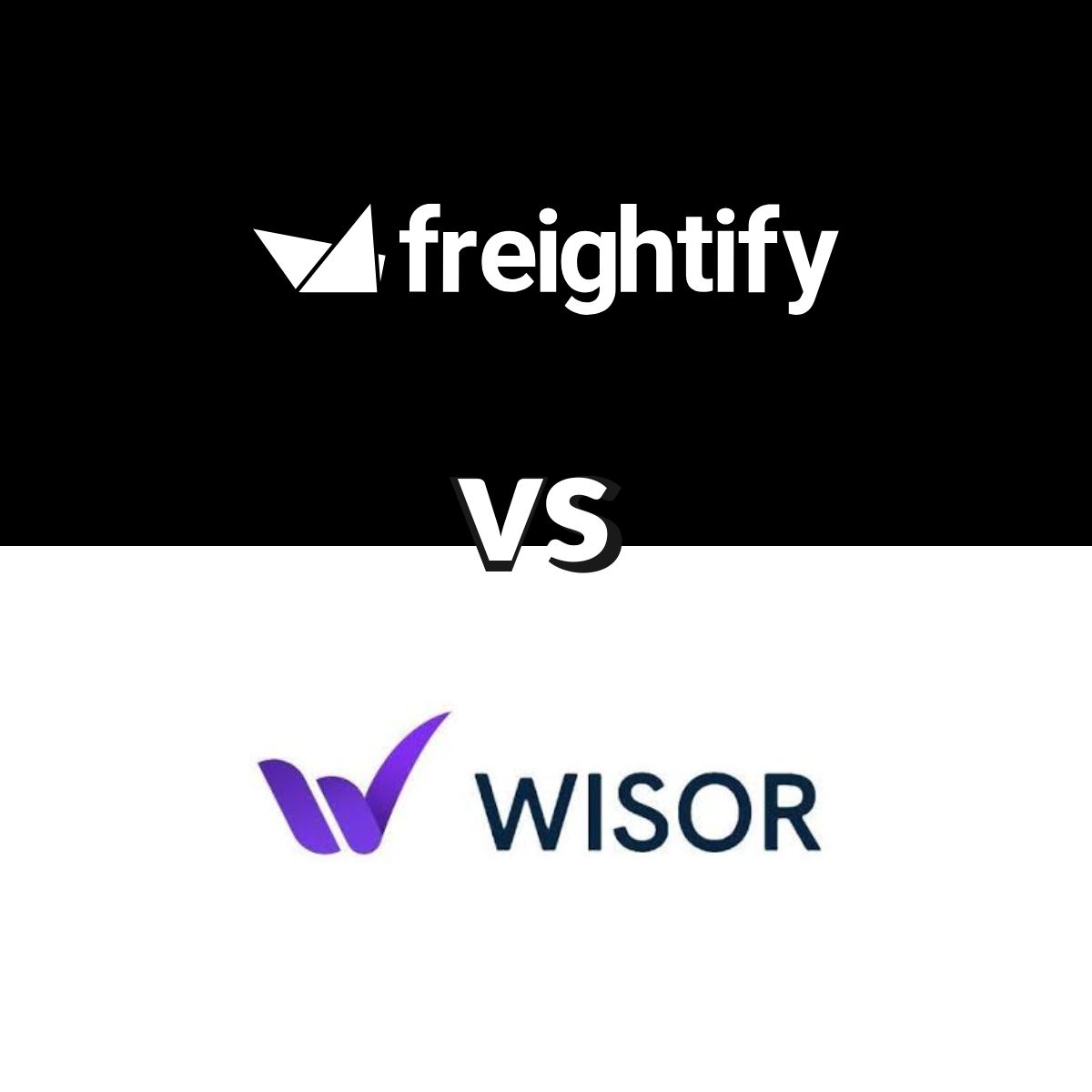Over the last decade, the logistics and transport industry has undergone much-needed changes that increased automation and efficiency. Modern technology made its way in the supply chain and is now indispensable for a resilient industry. Events like the current global pandemic are causing significant disruption in internal and external operations and interfere with a seamless global trade. Only businesses with an automated and flexible operating system can cope with the impact of the high market fluctuations.
To achieve greater automation and digitalization , several software solutions can be implemented into the supply chain of every stakeholder. SaaS-based freight management systems (FMS) are a game-changer for the industry. By now, they have become a necessity to keep up with global competitors and an intensely volatile market.
Also Read - 3 Hidden Costs Forwarders Face By Avoiding Digitalization
A freight management system has become a fundamental requirement for more efficiency, automation, and consequently for end-to-end visibility. The cloud-based system is scalable and provides different tools tailored to the needs of shippers, carriers, retailers, and forwarders.
Need to know something specific about Freight Management Software?
1. What is Freight Software? Why is Freight Management Software Needed? How to Choose The Right Freight Management Software?
Let us help you with your journey
Your One Stop Solution to Manage Spot, Contract rates & Margins!
What is Freight Software? A SaaS-based freight forwarding software is a computer-based program that can automate internal and external operations of a wide variety of freight management processes. The SaaS system - software as a service - is a cloud-based solution that allows users to access digital platforms without downloading or storing the software on the computer. This system provides absolute flexibility as it is accessible from any place and any device such as a computer, tablet, and smartphone.
FMS may take different forms such as:
Enterprise Resource Planning Software Supply Chain Management Software Transportation Management System Rate Management Software (eg. Freightify) All systems aim to condense the needed information and function in one centralized platform. From the dashboard, it is possible to get, for example, the best rates in real-time , display reports, and schedule pick-ups and deliveries.
Depending on the business, FMS helps to monitor and automate various operations without using multiple systems or suffer extended waiting times. All business operations can be streamlined and then monitored and automated through FMS.
Why is Freight Management Software needed? Functions of Freight Management Software(FMS) - Freightify Today's advanced FMS is a multi-functional interface that also allows the integration of different business operations via API. The main functions of an FMS are:
1. Scheduling Pick-Up and Delivery The freight movement can be scheduled and tracked in real-time. FMS allows monitoring different shipments at the same time. That includes an accurate ETA and the flexibility of rerouting and react to disruptions and delays. Also, it allows locating the right carrier and meeting the customer's expectations.
2. Preparation and Printing of Required Shipping Documents One of the most critical and time-consuming processes within global supply chains is the massive amounts of paperwork carriers and retailers have to face. FMS allows collecting, downloading, and sending the needed paperwork all along the supply chain. A solidly built FMS handles international documents to guarantee a seamless trade.
Also read - Is Transparency an Important Driver For Future Logistics?
3. Tracking and Notifications One of the most time-consuming tasks, if done manually, is the tracking of freight. Calling or mailing the numerous stakeholders within the supply chain localizing the shipped goods is thanks to FMS not needed anymore.
Once the delivery leaves the warehouse, the FMS tracks the shipment and automatically sends notifications to the recipient and third parties involved in the transportation chain. This is a crucial enhancement for transparency and end-to-end visibility.
4. Back-Office Operations and Quoting Back-office operations are one of the biggest time-consuming tasks in a company. Numerous calls, e-mails, and different sheets lead to inefficiencies and mistakes. Quoting often takes hours, involving companies to procure and compare rates from different carriers and deciding on one - only to find that rate to be outdated. Through FMS, it is possible to automate most of the operations, increasing accuracy and efficiency, and get real-time rates after only seconds.
FMS uses the mostly unused siloed data to give insights about operations, costs, and time efficiency. Thereby the company can optimize its internal and external operations.
Also read - 10 Reasons Why Your Logistics Business Need Digital Transformation in 2024
Let us help you with your journey
Procure, Manage and Quote freight prices (with ancillary charges) in under 2 minutes!
How to Choose The Right Freight Management Software? Choosing the right freight management software can be a challenging task. There are a variety of solutions from a number of providers in the market, making it hard for shippers to decide their ‘ideal’ solution. FMS is a significant investment, and if it is rightly chosen, it can drastically improve efficiency and productivity within a business.
We put together key points when looking for an FMS solution:-
1. Updates and Modern Technology Modern technology is evolving at great speed in our high-tech society, and so should the software solution. Many companies are using software or components developed a long time ago and consequently face legacy issues. These problems lead to the constant need for fixing and patching to keep up with the speed of the freight industry and reduce business agility and flexibility.
It is crucial that the chosen FMS must base on modern technology and adapt to all currently used devices such as smartphones and tablets. Not less important is the regular update of the FMS that fixes errors and bugs and improves the compatibility with upcoming technology and operating systems.
2. Perpetual license or SaaS-based system In the past, FMS was purchased through a license, mainly in the form of hard discs. This system was highly inflexible as the purchaser had to wait until the next version to update his system or even buy another program altogether.
These days, most of the FMS providers are SaaS-based and work with a subscription system. This way, an updated freight management system is guaranteed, and it also maximizes adaptation of scale to gain more control over costs and resource allocation.
3. Centralized system or not? Nowadays, there are many FMS providers out there to offer different tools and components. It seems almost tempting to create an own customized package out of all offers in the market.
However, a decentralized model is very complex and can create more problems than help. Possibly, the different components cannot be synchronized that do not work seamlessly together.
Therefore, it is always recommendable to choose a centralized end-to-end FMS solution providing a less complex implementation and a minor effort as data is only entered once.
Centralized FMS also ensure higher end-to-end visibility and transparency among different actors of a logistics business.
4. Pick and choose software components The logistics industry involves a variety of tasks depending on each business model. Not every business has the same expectations at its FMS.
What is needed for one is not crucial for another, and therefore a good FMS provider should provide flexibility to its customers.
5. Time frame for software implementation Another crucial aspect is a reasonable time frame for FMS implementation depending on the size of the company, that can take days or months.
The provider should have a track record of fast and efficient installation, or the company can suffer from operational downtime or long-term issues when the installation is rushed. The service contract between provider and company should stipulate a reasonable time frame for implementing the FMS.
6. Explanation of the offered product What seems to be an essential requirement is as important as other aspects.
The provider must explain the software and technology they used to make sure to meet the needs of their customers. Only then can the customer be sure to be appropriately guided and advised. This plays a crucial role when problems and disruptions in the system need to be solved by customer service.
7. Customer support The logistics industry never sleeps, and nor do most of the involved businesses within the industry. Therefore, it is crucial for seamless and hassle-free operations to contract a provider with efficient and trained customer support to ensure system functionality at any time.
8. In-house vs. third-party provider FMS can be contracted by a third party or by the creator of the software. It is highly recommended that the FMS provider develops their system in-house as this guarantees that the provider has more knowledge about the product and high interest that its product works properly. Read our detailed article on building vs buying a software solution for your logistics business.
9. Experience An experienced FMS provider is more reliable when fundamental changes happen in the industry.
A current example is a change from 3G to 4G - a profound and critical change in the operational system of the global network.
10. Data protection Businesses often handle sensitive information that needs to be protected. When choosing an FMS provider, strong regulations about data privacy and security are key.
Conclusion Finding the right freight management system can be a challenging task. Nevertheless, it is essential to study the market to find a tailored system to meet business needs.
Freight Rate Management system by Freightify is a SaaS-based FMS with the goal to provide its clients more time and cost efficiency through functions such as internal quoting or its margin management solution. The right FMS is an essential requirement for any successful business.
Read more The Real Cost of Manual Rate Management For Logistics Businesses Why Do Forwarders Need Automated Rate Management Solutions? What Drives The Volatile Shipping Rates? 



















